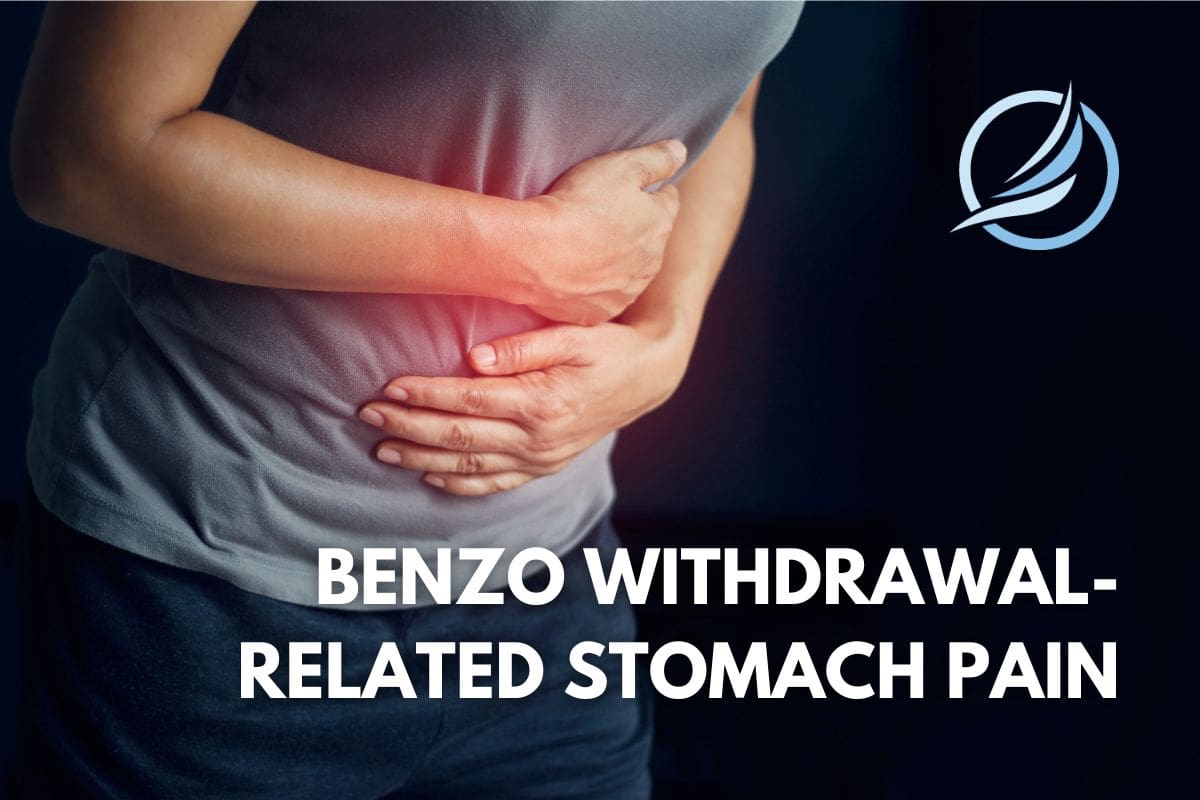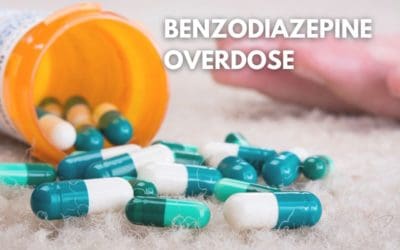Benzodiazepines, commonly known as benzos, are widely used to treat anxiety and sleep disorders, providing much-needed relief for many individuals. However, moving away from these medications presents a series of challenges, including the painful withdrawal symptom: benzo withdrawal-related stomach pain.
Let’s explore how to effectively manage this complication, providing hope and practical advice for those prepared to embark on this demanding yet ultimately rewarding journey toward recovery.
The Role of Benzos and Digestion
While effective for calming the nerves and promoting sleep, benzodiazepines have a profound impact on the body beyond their intended psychological effects. One of the lesser-known areas affected by benzodiazepines is the gastrointestinal (GI) system.
The relationship between benzos and the GI system is complex. By design, these drugs slow down the brain’s activity, promoting a sense of calm. However, this slowing effect also extends to the digestive system, potentially altering its function.
This leads to the question: “Do benzos work better on an empty stomach?”
The answer isn’t straightforward. While the presence or absence of food in the stomach can affect the absorption of benzodiazepines, the primary concern for those in withdrawal is how these changes in digestive function can contribute to discomfort, including stomach pain and cramps.
Benzo Withdrawal Symptoms
Withdrawal from benzodiazepines can manifest in a variety of symptoms, reflecting the drug’s widespread impact on the body. Below is a list of common benzo detox symptoms:
- Gastrointestinal Discomfort: benzo stomach cramps, nausea, vomiting, diarrhea, or constipation.
- Anxiety and Panic Attacks: Heightened anxiety, which may include panic attacks, is one of the most common symptoms of benzo withdrawal.
- Sleep Disturbances: Insomnia, nightmares, and restless sleep are frequent challenges during withdrawal.
- Mood Swings: Individuals may experience significant mood fluctuations, including depression and irritability.
- Cognitive Difficulties: Memory impairment, confusion, and concentration issues can occur.
- Muscle Aches and Tension: Widespread muscle discomfort, including spasms and stiffness.
- Headaches: Ranging from mild discomfort to severe migraines.
- Sensory Sensitivities: Increased sensitivity to light, sound, and touch.
- Seizures: In severe cases, withdrawal can lead to seizures, emphasizing the need for medical supervision.
Strategies for a Smoother Benzo Detox
Navigating the path to recovery from benzodiazepine dependency requires a comprehensive strategy that addresses both the mind and body. Here are key approaches to ensure a smoother benzo detox experience:
- Gradual Tapering: One of the most critical strategies for minimizing withdrawal symptoms is to reduce benzodiazepine use under medical supervision gradually. A slow taper allows the body to adjust to lower levels of the medication, reducing the intensity of withdrawal symptoms.
- Nutritional Support: Eating small, balanced meals throughout the day can help stabilize blood sugar levels, reducing mood swings and anxiety. Including foods rich in fiber can alleviate gastrointestinal symptoms such as constipation.
- Psychological Support: Engaging in therapy, whether individual or group, can provide valuable support and coping strategies. Additionally, mindfulness and relaxation techniques can reduce stress and anxiety levels, which may, in turn, alleviate some physical symptoms.
- Physical Activity: Gentle exercise, such as walking, yoga, or tai chi, can boost mood and reduce stress, helping manage psychological and physical withdrawal symptoms.
- Alternative Therapies: Acupuncture, massage therapy, and aromatherapy are examples of alternative therapies that can complement traditional withdrawal management strategies.
- Medicinal Support: In some cases, healthcare professionals prescribe medications to manage specific symptoms of withdrawal, such as anticonvulsants for seizure prevention or anti-nausea drugs.
- Hydration and Electrolyte Balance: Staying adequately hydrated is essential, especially when experiencing vomiting or diarrhea. Electrolyte solutions or supplements can help maintain the body’s electrolyte balance, supporting overall health during detox.
When to Seek Medical Help
While the journey through benzodiazepine withdrawal is profoundly personal and varies from one individual to another, specific symptoms and conditions necessitate immediate professional intervention. Recognizing these signs is crucial for ensuring safety and health during detox. Here are key indicators that it’s time to seek medical help:
- If stomach pain, cramps, nausea, or vomiting become severe and unmanageable.
- Severe anxiety, panic attacks, depression, or suicidal thoughts are alarming signs.
- Symptoms such as severe headaches, muscle spasms, or seizures escalate.
- If withdrawal symptoms become so intense that they interfere with your ability to perform basic daily activities.
- The urge to use benzodiazepines again to relieve withdrawal symptoms becomes overwhelming.
Embarking on the Path to Recovery
By understanding the intricate relationship between benzodiazepines and digestion, recognizing the broad spectrum of withdrawal symptoms, and employing a comprehensive strategy for easing the detox process.
Remember, while the road to recovery may be fraught with challenges, you are not alone. The discomfort of withdrawal, including stomach pain and other symptoms, is temporary and manageable with the right support and strategies. Seeking medical help when necessary is not a sign of weakness but a prudent step towards ensuring a safe and successful detox.

































